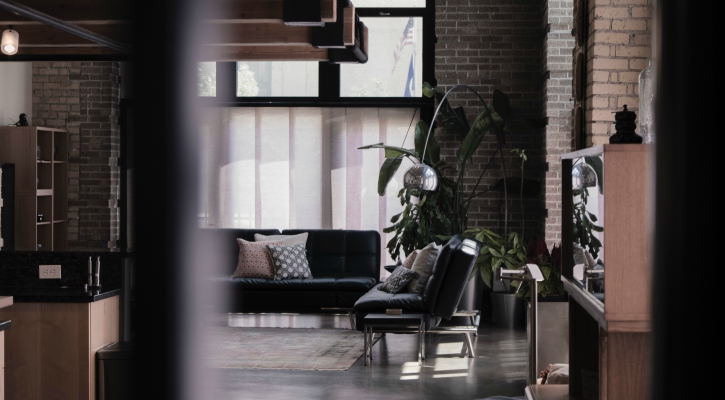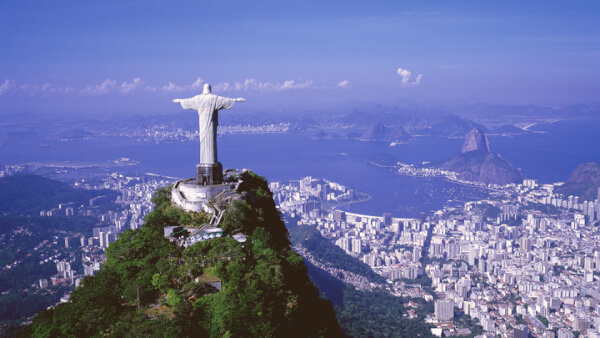How to get a job in Rio de Janeiro: 8 steps
Rio de Janeiro is one of the richest cities in Latin America, with a diverse economy covering finance, manufacturing and tourism among its developed sectors....

For a lively culture steeped in tradition and beachfront properties at a fraction of prices seen in many other countries, you can’t beat Brazil. The country isn’t without its problems, though, which are mainly infrastructure related, like high utility costs and varying quality of healthcare. But that isn’t stopping many people from considering Brazil as a new home. Sunshine and plentiful beaches, what more do you need?
Still, a move to Brazil presents a number of financial challenges that you may not see coming. Read on for some tips and tricks that will help you budget for your move and do it in the most cost-effective way possible.

The number one rule for saving money in any move is to do things yourself if you can, rather than hiring professional help. That especially goes for packing up your things, since having professional movers do it for you can cost thousands. Packing yourself will also encourage you to pare down your belongings and only take with you what you actually need. If you have to, ask family and friends to help you pack as their help will be cheaper than movers.

This one is going to take some research. In many parts of Brazil, especially rural ones, consumer goods are much more expensive than they are in other parts of the world. This includes clothes, electronics and furniture. In many situations, it’s smarter to sell all your stuff and start over in your new country, but in this case it’s worth looking into the cost of shipping at least some of your things, and how that compares to the cost of replacing everything in Brazil.

Moving requires a lot of organization. You have to tie up all the loose ends in your home country before you go. Last minute bills and other forgotten details could end up costing you. Do a little extra adulting to make sure you’re taking care of all the last minute things that could be forgotten in the stress of the move.
Take some time to write out a physical to-do list with all the tasks you need to accomplish before you move. As you finish them, cross them off. You’ll be far less likely to forget small errands this way.
Once your list is done, estimate the cost of each item on it to give yourself a rough budget of what your move is going to cost.
If you have magazines or other subscriptions, make sure you cancel them before you leave your home country. The same goes for any other monthly expenses you'll no longer need, like gym memberships or streaming services.
There are certain times of year when fewer people are moving, which means movers are less expensive and housing is more plentiful. Try to time your move for winter or the middle of the month, which are less common times for people to move.
Estimating the cost of an international move can be tricky, but there are online calculators, like this one, that can help.

Opening your first local bank account in Brazil may require paperwork that you don’t have yet as a brand new ex-pat. If you get held up trying to track down the right documents to open an account, you’ll need another way to access your money in the meantime.
You can always withdraw cash from ATMs, but you'll probably be charged fees each time you do so. And be careful of ATMs that offer to do the transaction in your home currency instead of Brazilians reals -- this is often a Dynamic Currency Conversion (DCC) charge, which means the bank is converting the withdrawal amount at a conversion rate of its choosing and keeping the difference as a profit. Luckily, this is easy to avoid; just choose reals as the currency you want to complete your transaction in and calculate the conversions yourself.
Another option for making sure your money is available once you cross the border into Brazil is to use a Wise multi-currency borderless account, which allows you to hold and manage money in multiple global currencies at once. You can then transfer money to a bank account when you need it, or use a Borderless consumer debit card, which will be available for Borderless account holders by 2018.

In the age of AirBnb, furnished rentals are pretty easy to find in Brazil, and while they may cost slightly more in rent, housing prices are still low compared to many other countries.

Brazil is notorious for its high utilities costs due to poor infrastructure throughout the country. Be prepared to shell out for utilities, especially electricity.

The quality of healthcare varies widely in Brazil. Only a handful of private hospitals in larger cities meet international quality standards, and they know it, so they’ve raised prices significantly in the last 10 years or so. While healthcare costs in Brazil are still much more affordable than, say, the United States, getting quality care at a private hospital is still going to cost you. To help offset costs should you become sick or get injured, you should plan on purchasing private health insurance, which is widely available in Brazil.

If you’re bringing pets along on your move, there are a host of other costs and requirements to consider. Cats and dogs aren’t required to be quarantined upon entry in Brazil, but they will have to have health certificates done by a veterinarian within 10 days prior to entering the country, and rabies vaccines administered within the prior year. You’ll also have to pay for tick and tapeworm treatments for your pets within 15 days of them entering Brazil. Some exotic animals, especially certain kinds of parrots and turtles, may require extra permits to keep as pets in Brazil, and those have fees associated with them as well.
If a new life in Brazil is calling you, these hacks should help ease the stress of the move, both on your mind and your wallet. Good luck with your move!
*Please see terms of use and product availability for your region or visit Wise fees and pricing for the most up to date pricing and fee information.
This publication is provided for general information purposes and does not constitute legal, tax or other professional advice from Wise Payments Limited or its subsidiaries and its affiliates, and it is not intended as a substitute for obtaining advice from a financial advisor or any other professional.
We make no representations, warranties or guarantees, whether expressed or implied, that the content in the publication is accurate, complete or up to date.

Rio de Janeiro is one of the richest cities in Latin America, with a diverse economy covering finance, manufacturing and tourism among its developed sectors....

Let’s face it, Brazil isn’t known for their world class education system. Ranked #32 in the world for their schools, the South American country has faced a...

Brazil is huge - the largest country in South America - and all the major cities are home to active communities of expats. International arrivals are drawn by...

Brazil is the largest country in South America, but most of the nation’s population lives in cities. In fact, about 82 of every 100 Brazilians reside in urban...

Lovers of relaxing beach days and wild nightlife alike dream of living in Rio de Janeiro. Known as one of the most famous cities in South America (if not the...